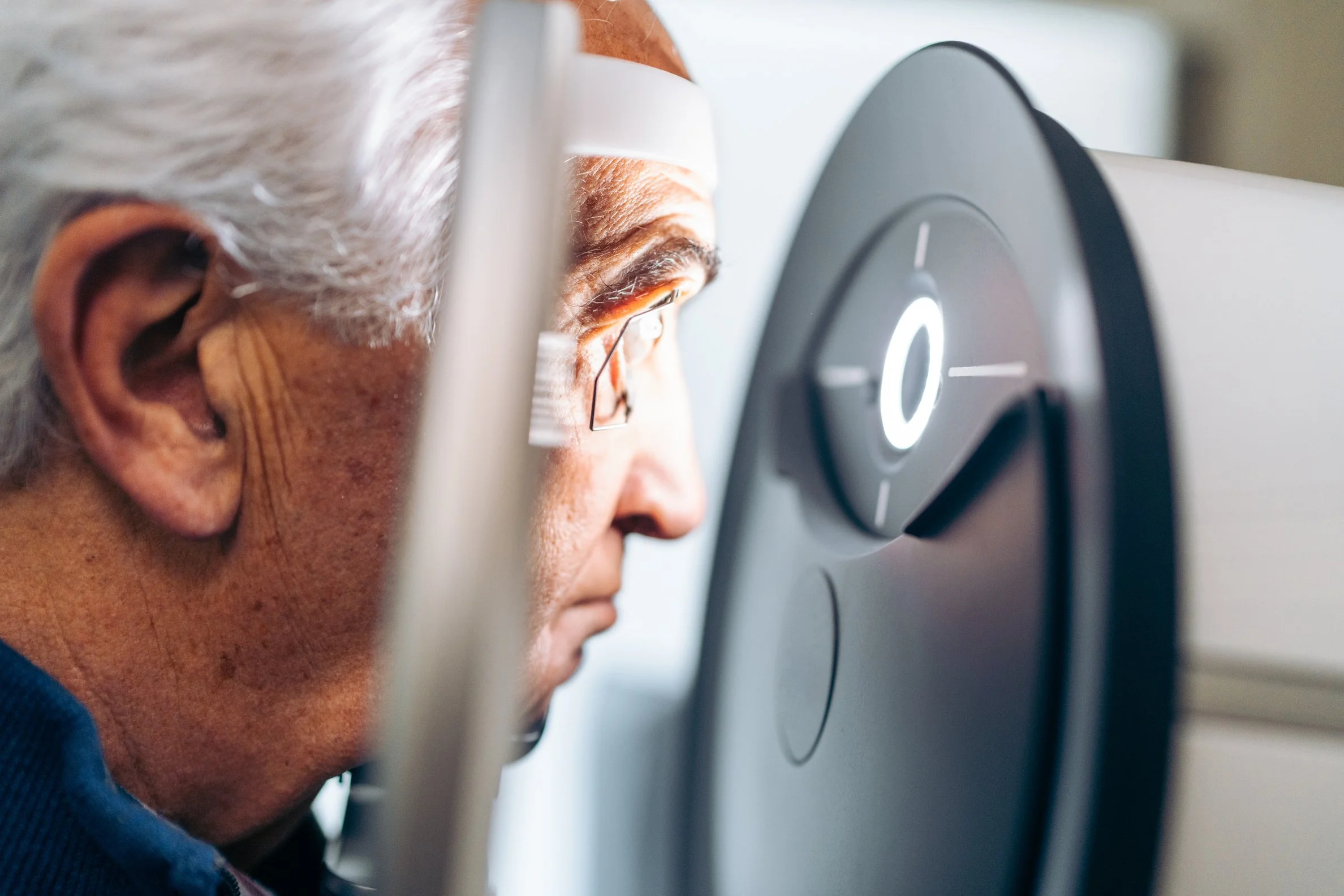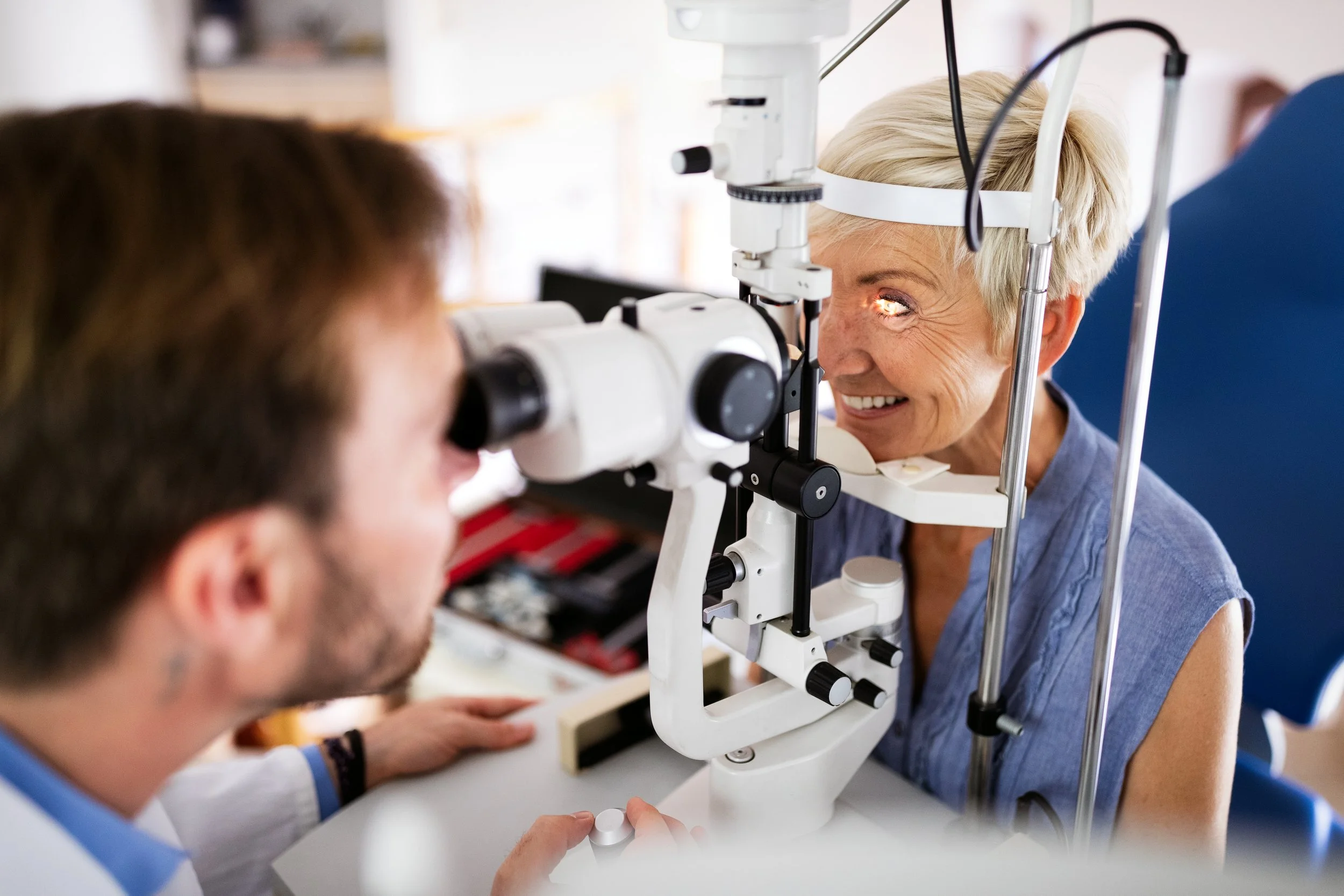
Common Eye Disorders
Retinal Tear and Detachment
The retina is the light-sensitive tissue lining the back of our eye. Light rays are focused onto the retina through our cornea, pupil and lens. The retina converts the light rays into impulses that travel through the optic nerve to our brain, where they are interpreted as the images we see.
Pinguecula and Pterygium
Pterygium and pinguecula are two common eye conditions that affect the clear tissue (conjunctiva) covering the white part of the eye. Both are noncancerous growths that usually develop slowly over time and are more common in people who spend a lot of time outdoors in the sun, wind, or dusty environments.
Macular Degeneration
Age-related macular degeneration (AMD) is one of the most common causes of poor vision after age 60. AMD is a deterioration or breakdown of the macula. The macula is a small area at the center of the retina—the light-sensitive tissue lining the back of the eye.
Floaters and Flashes
Small specks or clouds moving in your field of vision as you look at a blank wall or a clear blue sky are known as floaters. Most people have some floaters normally but do not notice them until they become numerous or more prominent.
Dry Eye Syndrome
Dry eye syndrome is a very common and frustrating disorder suffered by over 10 million Americans. It is very prevalent in this part of the country as we have an abundance of dry weather and wind aggravating the problem. A healthy tear film is necessary for a normally functioning eye.
Conjunctivitis
Conjunctivitis is a term used to describe inflammation or infection of the clear skin, or conjunctiva, that covers the white part of the eye—the sclera. Viral infection, bacterial infection, and allergy are the three main causes of typical conjunctivitis. Their symptoms and signs can differentiate them.
Epiretinal Membrane
The retina is a layer of light-sensing cells lining the back of your eye. As light rays enter your eye, the retina converts the rays into signals that are sent through the optic nerve to your brain, where they are recognized as images.










